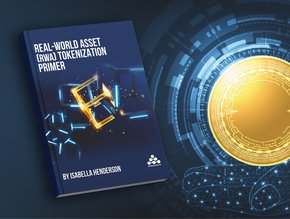Coronavirus and a cashless society

COVID-19 has changed society as we know it over just a few months — working from home, social distancing, masks and countries across the globe on the brink of an economic crash. Once upon a time the concept of a cashless society may have sounded like it was straight from science fiction, but the rise of e-commerce, flexibility of banking and the growing number of ‘no cash accepted’ signs in physical shops has left purses empty, with the exception of a debit or credit card.
Despite the direction we appear to be heading, no society exists yet that is entirely cash-free. Cash has almost been eliminated in several countries, Sweden being an interesting example, where cash withdrawals have been declining by around 10% every year. In 2019, just 1% of Swedens GDP was made up of cash transactions.
The benefits of a cashless society
- Untraceable illegal activities: money laundering, illegal gambling and drugs operations are all part of this. With every payment received recorded, it would be infinitely more difficult to evade taxes too.
- Lower physical theft rates: with no physical money to steal in anyone's pockets, theoretically crime involving cash thefts would disappear. Muggings, shop and house break-ins and handbag theft are just a few examples of crimes that would likely die out.
- Simpler currency exchange: physically going into a shop to exchange money for another currency may soon be a thing of the past. As we’ve established, carrying cash makes you vulnerable, particularly abroad. Most digital banks now allow you to pay internationally by card at a great exchange rate and you will never have to worry about if you have enough money to get you through your holiday.
The disadvantages of a cashless society
- The risk of hackers: Electronic money means vulnerability to hackers. Although your money is protected in the majority of circumstances under federal law in the United States and organisations such as the FCA (Financial Conduct Authority) in the United Kingdom, it can be very inconvenient and stressful if your bank account is hacked and possibly drained.
- The temptation to splurge: with no physical banknotes leaving your hand when you make a purchase, psychologically it may be able to spend more frequently and more per transaction without noticing. Many popular digital banks that promote a cashless way of living provide users with information and tools in saving and staying in control of money.
- Relying on technology: if systems malfunctions or servers face an error, it is out of your control. Money in your account would be inaccessible, and there would be no emergency cash to use for the time being.
- The economic divide: a cash-free society would mean nearly all money management and transfers would have to be done via the internet or on a mobile app. Accessibility to these devices and services would be much more limited to those who could not afford to buy a phone or home computer. Those with no fixed address would also not be able to open a bank account at all, creating a further rift between the rich and the poor.
To conclude, it is difficult to guess what the future of cash will be. As technology advances year by year the world we live in evolves around us. Perhaps society will remain a blend of coins and contactless? Or perhaps the COVID-19 pandemic will topple some nations into a cash-free future? We’d love to hear your thoughts on the pros and the cons of a cashless society, Tweet us at @FinTech_Mag on Twitter or tag us in a post on LinkedIn.






